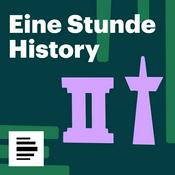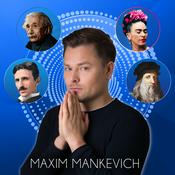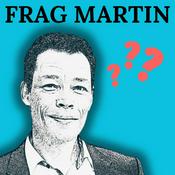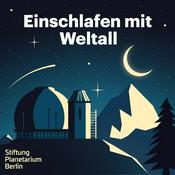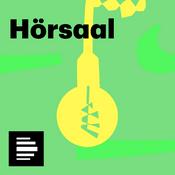166 Episoden

Nicholas of Cusa: Life & Philosophy
25.12.2025 | 1 Std. 11 Min.
Nicholas of Cusa was a 15th-century philosopher, theologian, and mathematician whose ideas anticipated modern science and philosophy. In this video, we explore his life, key works, and radical concept of “learned ignorance,” as well as his views on infinity, knowledge and religious diversity. Discover why this forgotten medieval thinker still matters today.Find me and my music here:https://linktr.ee/filipholmSupport Let's Talk Religion on Patreon: https://www.patreon.com/letstalkreligion Or through a one-time donation: https://paypal.me/talkreligiondonateSources/Recommended Reading:Bond. H. Lawrence (edited and translated by) (1997). "Nicholas of Cusa: Selected Spiritual Writings". Classics of Western Spirituality Series. Paulist Press.Hopkins, Jasper (translated by) (1986). "NICHOLAS OF CUSA’S DE PACEFIDEI AND CRIBRATIO ALKORANI". Second edition. THE ARTHUR J. BANNING PRESS MINNEAPOLIS.McGinn, Bernard. "The Presence of God" Series, in several volumes. Perhaps the best and most comprehensive introduction to Christian mysticism. Published by Crossroad Publishing Co.Valkenberg, Pim (2011). "Sifting the Qur’an: Two Forms of Interreligious Hermeneutics in Nicholas of Cusa". In "Interreligious Hermeneutics in Pluralistic Europe", Currents of Encounter Online, Volume: 40. Brill. Hosted on Acast. See acast.com/privacy for more information.

What is Taqqiyya?
17.12.2025 | 25 Min.
In this video, I explain the meaning of taqiyya in Islamic tradition & where it comes from. We look at its historical context, what scholars actually say about it historically and today.Find me and my music here:https://linktr.ee/filipholmSupport Let's Talk Religion on Patreon: https://www.patreon.com/letstalkreligion Or through a one-time donation: https://paypal.me/talkreligiondonateSources/Recommended Reading:Hallaq, Wael (2004). "The Origins and Evolution of Islamic Law". Cambridge University Press. Hallaq, Wael (2009). "Sharia: Theory, Practice, Transformations". Cambridge University Press. Stewart, Devin (2013). "Dissimulation in Sunni Islam and Morisco Taqiyya*". AL-QANTARA, XXXIV 2, 2013, pp. 439-490.https://islamqa.org/hanafi/askimam/81133/?utm Hosted on Acast. See acast.com/privacy for more information.

What is Sharia Law, Really?
23.11.2025 | 33 Min.
What is Sharia law, really? In this video, we break down the meaning of Sharia, explain where it comes from, and discuss some of the most misunderstandings you’ve probably heard online.Find me and my music here:https://linktr.ee/filipholmSupport Let's Talk Religion on Patreon: https://www.patreon.com/letstalkreligion Or through a one-time donation: https://paypal.me/talkreligiondonateSources/Recommended Reading:Hallaq, Wael (2004). "The Origins and Evolution of Islamic Law". Cambridge University Press. Hallaq, Wael (2009). "Sharia: Theory, Practice, Transformations". Cambridge University Press. Kamali, Mohammad Hashim, 'Shariah: Meaning, Definition, History, and Sources', Shariah and the Halal Industry (New York, 2021; online edn, Oxford Academic, 19 Aug. 2021). Hosted on Acast. See acast.com/privacy for more information.

Abd al-Qadir al-Jilani & The Qadiri Sufi Order
23.11.2025 | 47 Min.
The Qadiriyya is often called the most widespread Sufi order in the world — but how did one 12th-century mystic in Baghdad inspire a global movement that still thrives today?This episode explores the life and legacy of Abd al-Qadir al-Jilani, the saint revered across the Muslim world as Ghaus al-A‘zam — “the greatest helper.”From medieval Baghdad to North Africa, Turkey, South Asia, and beyond, we trace how his teachings spread across continents, shaping Islamic spirituality for nearly 900 years.Find me and my music here:https://linktr.ee/filipholmSupport Let's Talk Religion on Patreon: https://www.patreon.com/letstalkreligion Or through a one-time donation: https://paypal.me/talkreligiondonateSources/Recommended Reading:Abun-Nasr, Jamil M. (2007). "Muslim Communities of Grace: The Sufi Brotherhoods in Islamic Religious Life". C Hurst & Co Publishers Ltd.Knysh, Alexander (2012). "Islamic Mysticism: A Short History". BRILL. Malik, Hamza (2018). "The Grey Falcon: The Life and Teaching of Shaykh 'Abd Al-Qadir Al-Jilani". BRILL.Trimingham, John Spencer (1971). "Sufi Orders in Islam". Oxford University Press. Hosted on Acast. See acast.com/privacy for more information.

What is Alchemy?
05.11.2025 | 1 Std. 3 Min.
Discover the fascinating history of alchemy — the ancient art that aimed to turn base metals into gold. From mystical experiments to the birth of modern chemistry, this video explores how alchemists shaped science, philosophy, and the human quest for knowledge.Find me and my music here:https://linktr.ee/filipholmSupport Let's Talk Religion on Patreon: https://www.patreon.com/letstalkreligion Or through a one-time donation: https://paypal.me/talkreligiondonateSources/Recommended Reading:Abt, Theodore (ed.) (2007). "Corpus Alchemicum Arabicum: Book of the Explanation of the Symbols Kitab Hall Ar-Rumuz". Psychological Commentary by Marie-Louise Von Franz. Living Human Heritage Publications. Adamson, Peter (2021). "Al-Rāzī". Great Medieval Thinkers. OUP USA.Corriente, Federico & Ed Emery (translated by) (2004). "Twenty-seven Muwashshashaat and One Zajal by Ibn al-'Arabi of Murcia (1165-1240)". Dodge, Bayard (translated by) (1998). "The Fihrist: A 10th Century Ad Survey of Islamic Culture". Kazi Pubns Inc. Grimes, Shannon (2018). "Becoming Gold: Zosimos of Panopolis and the Alchemical Arts in Roman Egypt". Rubedo Press.Hirtenstein, Stephen (translated by) (2018). "The Alchemy of Human Happiness (Mystical Treatises of Muhyiddin Ibn 'Arabi)". Anqa Publishing.Principe, Lawrence (2013). "The Secrets of Alchemy". University of Chicago Press. Hosted on Acast. See acast.com/privacy for more information.
Weitere Bildung Podcasts
Trending Bildung Podcasts
Über Let's Talk Religion
Höre Let's Talk Religion, Wissen mit Zoé und viele andere Podcasts aus aller Welt mit der radio.at-App
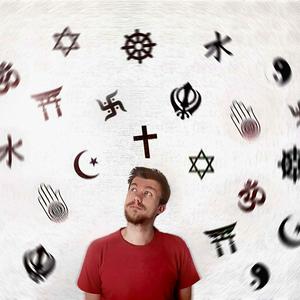
Hol dir die kostenlose radio.at App
- Sender und Podcasts favorisieren
- Streamen via Wifi oder Bluetooth
- Unterstützt Carplay & Android Auto
- viele weitere App Funktionen
Hol dir die kostenlose radio.at App
- Sender und Podcasts favorisieren
- Streamen via Wifi oder Bluetooth
- Unterstützt Carplay & Android Auto
- viele weitere App Funktionen


Let's Talk Religion
App laden,
loshören.







